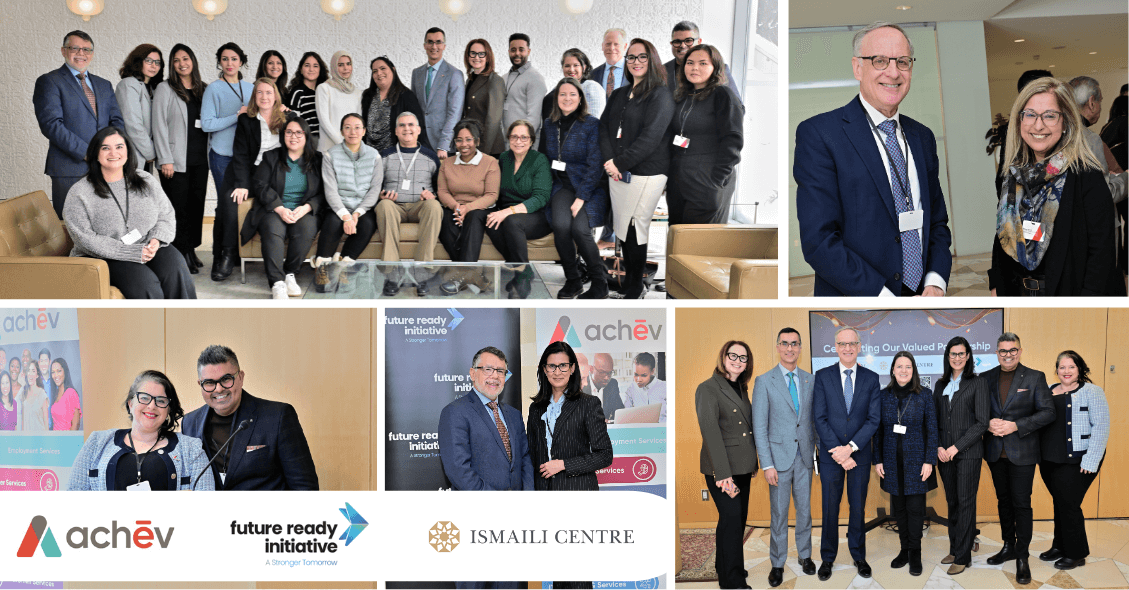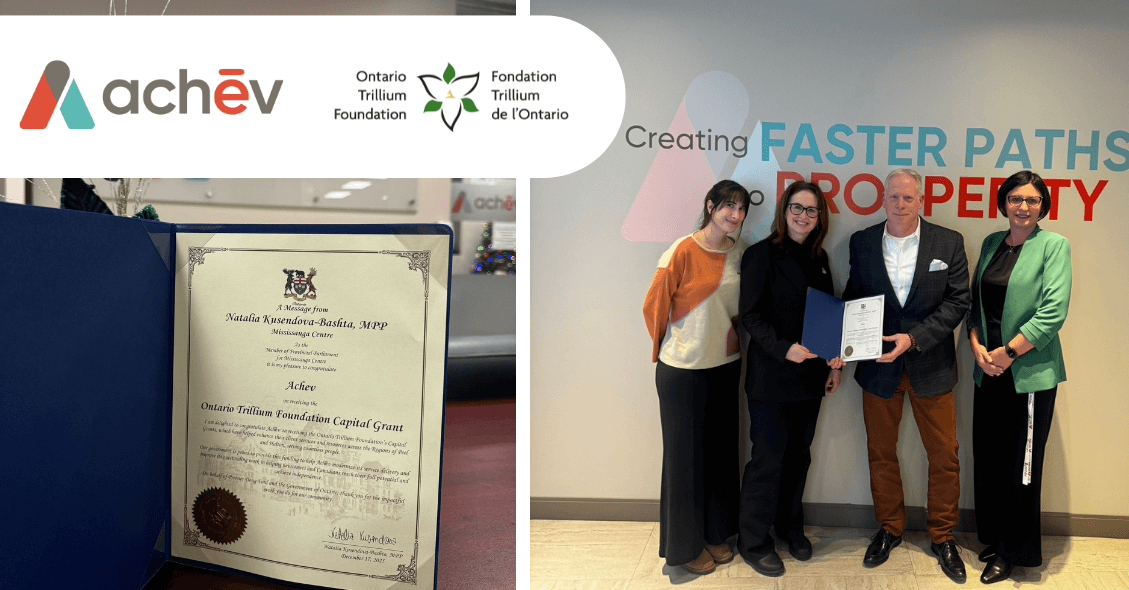On Friday, January 16, 2026, Achēv and the Future Ready Initiative at the Ismaili Centre, Toronto welcomed community partners, government representatives, and local leaders to celebrate the successful launch of a new itinerant Employment Ontario service model. The event marked an important milestone in expanding accessible, community‑based employment supports for residents in the Don Mills area.
“We’re opening doors to good-paying, in-demand careers by breaking down barriers and helping more people gain the confidence, training and skills they need to build Ontario’s future,” said David Piccini, Minister of Labour, Immigration, Training and Skills Development. “By bringing services directly into the community and working alongside partners like Achēv and the Future Ready Initiative, we’re protecting Ontario workers and making it easier for them to access the supports they need to connect with real opportunities in a growing economy.”
Remarks were brought on behalf of Ontario’s Minister of Citizenship & Multiculturalism, the Honourable Graham McGregor, and local representatives MP Rob Oliphant & MPP Dr. Adil Shamji addressed attendees. Over 50 guests – including community partners, staff, clients, and government officials – attended the celebration.
During the event, attendees learned how Achēv has begun delivering on‑site Employment Ontario services at the Ismaili Centre, Toronto. This flexible model allows job seekers to access employment counselling, job search support, and training pathways in a culturally welcoming and easily accessible environment. The approach is designed to reduce barriers, increase service reach, and ensure that community members can receive support where and when they need it.
“At Achev, we put job seekers and communities at the center of everything we do, creating partnerships that amplify impact,” said Natalie Renton, Achēv’s Senior Director of Programs and Services. “Our collaboration with the Future Ready Initiative reflects this shared commitment to helping individuals access meaningful employment and building thriving communities together.”
“This partnership demonstrates how community-based collaboration can improve access to essential employment and support services,” said Aleem Punja, Executive Director for the Future Ready Initiative, Ismaili Council for Canada. “By delivering coordinated services in trusted community spaces, we are reducing barriers, supporting economic participation, and strengthening outcomes for individuals, families, and the broader community.”
For over 30 years, Achēv has dedicated itself to helping newcomers and Canadians achieve their full potential. Achēv’s Employment Ontario services help job seekers explore career goals, identify training needs, and acquire job search and retention skills. These high-quality employment services are delivered through seven convenient employment centres across Toronto, Mississauga, Brampton, North York and Richmond Hill. Virtual employment services are also available through interactive video conferencing, webinars and e-learning modules. This Employment Ontario program is funded in part by the Government of Canada and the Government of Ontario.
The Future Ready Initiative (FRI) is a national agency of the Ismaili Council for Canada, focused on improving quality of life through integrated, community-based supports. FRI provides personalized family development planning, wrap-around case management, and livelihoods coaching and career services that support long-term economic and social well-being. Through partnerships with educational institutions and cross-sector organizations, FRI connects individuals and families to curated opportunities in education, skills development, and career advancement. Guided by the Ismaili Council for Canada and supported by a national network of volunteers and professionals, FRI works to empower individuals, strengthen families, and support communities to thrive across Canada.









